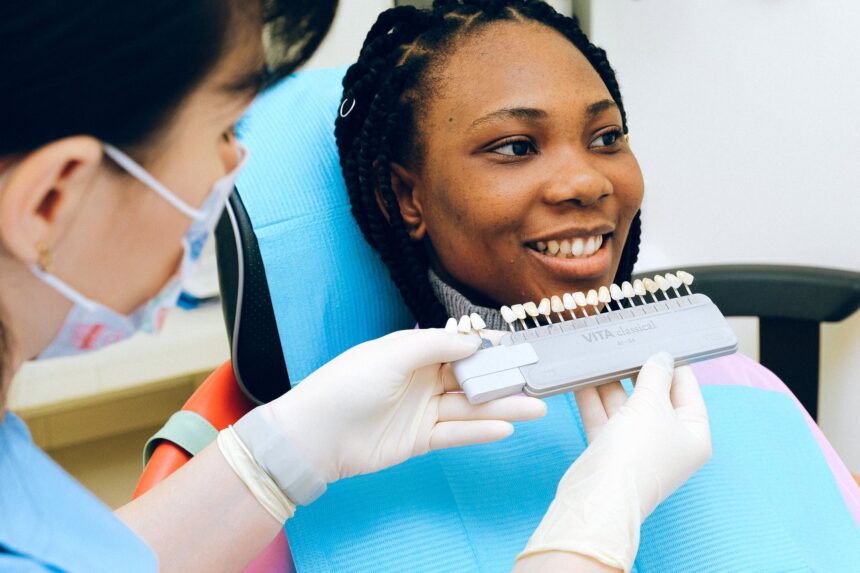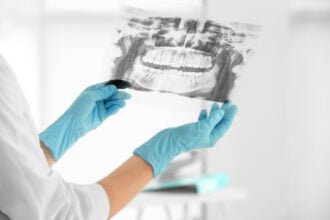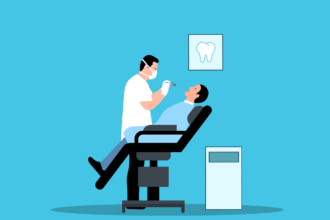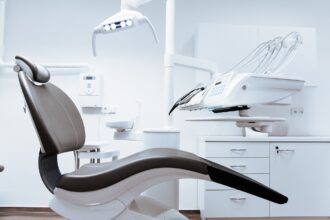More than 300,000 Canadians have dental implants, with roughly 50,000 new dental implants placed every year. It is a common procedure, especially among those who want to replace missing or broken teeth. However, dental implants require regular maintenance, and you need to take care of them diligently.
When you don’t take care of dental implants, there are fairly serious consequences. Without consistent daily care, you may start to see mucositis, aka gum bleeding. This can also progress to bone loss, aka peri-implantitis. Bone loss cannot be reversed, and it is not going to grow back. Furthermore, if it gets to be particularly bad, some patients experience bone loss to such an advanced degree that the implant must be removed.
Don’t ignore breaks, cracks, and damage to your dental implants. If it feels overly uncomfortable or there are visual signs of damage, leaving them will only worsen the situation. The denture will continue to crack, or the fit will be so tough to manage that you could run into bleeding gums, inflammation, and pain. If there’s ever a problem, don’t wait to get it fixed.
If you just received your new dental implants, here’s what you need to know on how to take care of them.
Clean Regularly
The actual dental implant will never develop decay or experience a cavity as real teeth will. However, the gum around a dental implant is very sensitive. They are vulnerable to infections and inflammation when dental implants aren’t being kept sanitized and clean. Most dentists recommend cleaning implants twice a day with a soft-bristle toothbrush. This should do the trick.
Twice a day, you should brush, floss, and do an oral rinse with alcohol. In terms of the brushing, make sure you tackle what’s around and under the implant crown. With flossing, be sure to use unwaxed tape or implant-specific floss. You want to be very careful operating around this area while also ensuring it’s properly cleaned.
Floss with Dental Implants
Flossing around abutments and elsewhere in the mouth is very important to keep your remaining teeth and gums healthy. Dental implants, ideally, will help inspire patients to take optimum care of their oral health.
While prosthetic teeth or dental implants won’t ever develop cavities, this doesn’t mean you won’t encounter cavities in your real teeth. They might be at risk of infections if you do not clean adequately.
Electric Toothbrush with Dental Implants
Yes, you can use an electric toothbrush to clean dental implants so long as the area is healed. That said, consult with your dentist for further information and if they advise against using an electric toothbrush, stick with that. However, for most patients, it shouldn’t be a problem only assuming everything is healed and not inflamed.
Complete Your Follow-Up Appointments
Do not miss your scheduled follow-ups in the months ahead. These are to ensure the implants aren’t irritating your gums, that the fit is good, and that the overall experience is positive. It’s also a time to address any inadequacies that may exist and ensure there isn’t a negative impact by wearing them.
Have Regular Cleanings Done
Part of the ongoing care around dental implants is to have professional cleanings done, not dissimilar to patients’ cleanings without implants. Patients with dental implants generally need more cleanings than those without. This ensures that nothing is getting caught where it shouldn’t be. The appointments ensure the dentures are kept in tip-top shape.
Avoid Heavy, Hard Foods
Food isn’t going to cause too much of an issue if you listen to what your dentist recommends. You have to be far more careful in the immediate healing post-surgery than you will weeks and months out. There’s a lot you can eat with dental implants. However, you still want to avoid the pressure of heavy or hard foods.
Anything that’s overly difficult to separate or chew with your teeth should understandably be avoided. This will hopefully prevent damage to your dentures and avoid having to come in for an emergency repair.
Avoid Abrasive Substances
Any abrasive substance should come nowhere near your dentures. That includes hard-bristle toothbrushes, baking soda, and bleach cleaners. These could weaken your implants, paving the way to permanent damage.
If you are questioning whether a substance or item is abrasive, contact your dentist for their input. They can tell you with certainty whether something is permissible with dentures or not. These sorts of abrasive substances are instinctively avoided in a lot of cases.
Targeting Plaque and Peri-Implantitis
Peri-implantitis is a pathological condition that occurs in the tissue around dental implants. It’s defined as ongoing inflammation resulting in the progressive loss of supporting tone. To keep this at bay, clean the area thoroughly.
Plaque accumulation between the teeth on either side of the implant should be removed with an interdental brush or aid. The area should be monitored over time to ensure this isn’t happening to you. Through regular check-ups, a dentist will be able to notify you if there’s inflammation occurring.










